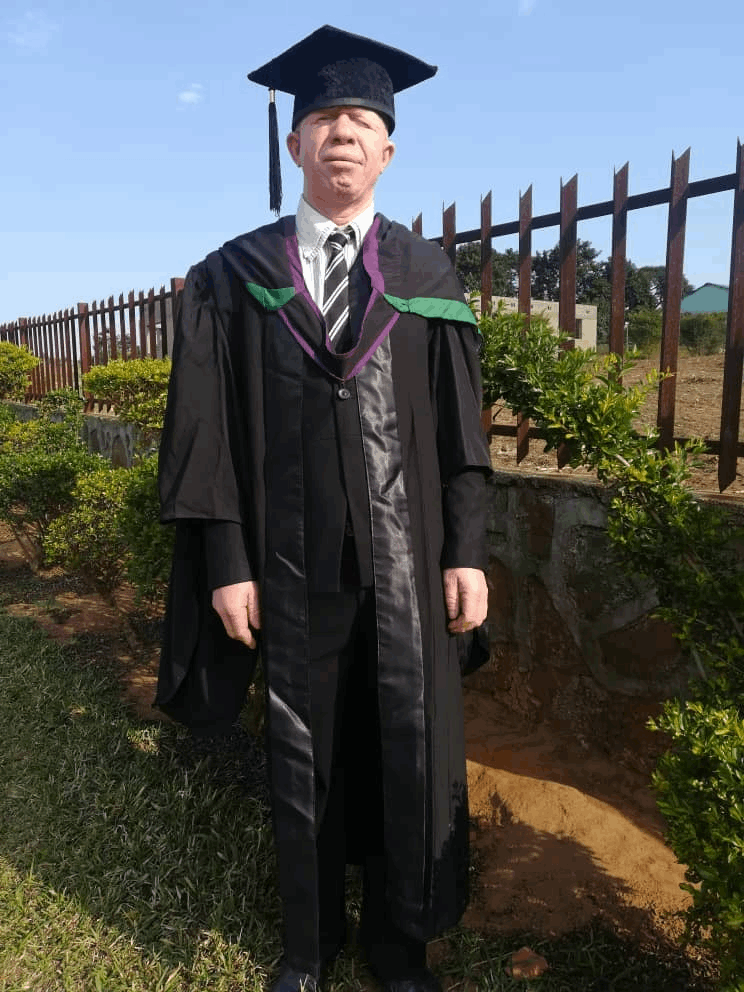
Fitzgerald Munyoro
In Chipinge town Dr Gift Fungai Chizana has made proverbial ‘’lemonade from the lemons’’ that life has gave him.
He rose from a rejected little boy to a man who is a role model for many.
And he is now changing lives by actively working to ensure that others don’t have to take the same trying path, he travailed.
In an interview with Zim Now, Chizana detailed the harrowing journey he had to endure, which started at birth.
“My upbringing was extremely difficult, when I was born my father refused to accept or acknowledge me as his son. He could not fathom the fact that a proud African man like himself could father a baby like me. As a result, my mother was forced to hand me over to my maternal grandmother and that is where I grew up,’’ said Chizana.
The “defect” that Chizana’s father could not accept is a genetic skin condition that is caused by a deficit in the production of pigment called melanin, a substance which protects the skin against ultra violet light and provides the skin with color production.
This is more commonly known as albinism.
According to a 2015 study by researcher Paul Wright it has been estimated that it affects about 1 in 5000 people in Africa.
Some African cultures have labeled albinism as a curse; a kiss of death by the ancestors and the Creator.
Historical accounts suggest that in some African traditional cultures, babies born with albinism were killed or left for dead in forests.
To this day, in some countries, beliefs are still rife that body parts of a person with albinism bring good fortune.
Though such bloody beliefs and practices have never been a part of Zimbabwean traditions, people with albinism still have to deal with stigmatization and rejection.
As fate would have it, Chizana’s parents were never to welcome another bundle of joy into the world. But his father never relented enough to accept his son.
“However, my grandmother did a stellar job of raising me like a normal child.”
It was only faced with the cruelty of his playmates that Chizana realized that he was different.
“When I began to socialize with other kids I was made to feel different and I was called all sorts of names. It was so bad that I had to acknowledge some of the names that I was called as part of my identity. If I ignored them, it would only get worse.
‘’The situation worsened when I enrolled at Mount Selinda for high school. My confidence was gone and I did not want people to see my skin so I would keep myself completely covered no matter how high the temperature was.’’
He chuckles as he remembers the solution of an ostrich burying its head in the sand:
Related Stories
“I thought by wearing a jersey I was covering myself and I forgot people could still see my face. You can never cover your face!’’
In retrospect, Chizana thinks that the social isolation helped him to stay focused on his studies and excel in his ordinary and advanced level results.
Post high school, Chizana looked for a job to fund his tertiary education. Discrimination and stigmatization raised their ugly heads as somehow school leavers with lesser academic achievements were hired while he only got regrets.
‘I really struggled to get a job after school because employers would not take me because of my albinism. It was more implied rather than explicitly stated. I would find that ex schoolmates who had lesser grades got the job ahead of me,” said Chizana.
He ended up enrolling at a teacher training institution. But he refused to give up his dreams. Through hard work and perseverance, he pushed until he reached could put the title Dr before his name.
The father of three has now shifted his focus from teaching to assisting underprivileged people living with albinism.
“I do not want other people with albinism to have to undergo the same predicaments as I did so I have a zeal to help them.”
Away from teaching, Chizana is now the focal liaison person for the albinism community in Chipinge and assists in accessing, procuring and securing essential skin care products.
‘’We have about 19 wards in Chipinge and we have a big albino community which numbers between 90-120.Most of them have challenges with coming to urban areas to access protective skin care products so I task myself to do that on their behalf. Chipinge is a bit on the peripheries so well wishers who mainly want to assist us with products come to main urban areas so I come and represent them,” said Chizana.
Chizana is the latest addition in a growing line of people living with albinism who are making powerful strides at shaking the status quo and re writing the narratives that surround albinism.
Media personality Candice Mwakalyelye is a prime example. Besides being a highly sought after name in radio and TV, Mwakalyelye is also a model and has been the face of the Beyond This Skin campaign which celebrates beauty in albinism.
In 2019, South African model Thando Hapo also inked her name into the history books as she became the first model with albinism to appear on the cover of fashion magazine Vogue.
Long before that, singer-songwriter Salif Keita captured the ears of the world with his searing vocals. Known as the Golden Voice of Africa the Malian vocalist also overcame ostracization to become a global music icon, proving once again that there is substance beyond the skin.
According to Chief Svosve of Mhakwe Heritage Trust, historical myths and dogmas surrounding albinism sees to be changing as well.
“Globalization has really put a lot of our beliefs to the test and some of them are failing to stand the test of logic, the mysticism surrounding albinos is one of them. As it turns out, they are just normal people like us.
“They do not possess any sort of superpower as we were made to believe. They have the right to life and all other rights shared by each and every one of us.” said Chief Svosve.
Though positives steps are being made, a lot of work still has to be done in regards to affording children living with albinism equal opportunities.
This is according to Hope for the Future trust founder Thandie Mhlanga, who works with young children with albinism:
“Small steps are being made and little victories are being gained but there are still challenges that need to be addressed. We need to afford the young children the right kind of equal opportunities as most of them come from poor backgrounds. Influential sectors must come together to address this problem.”










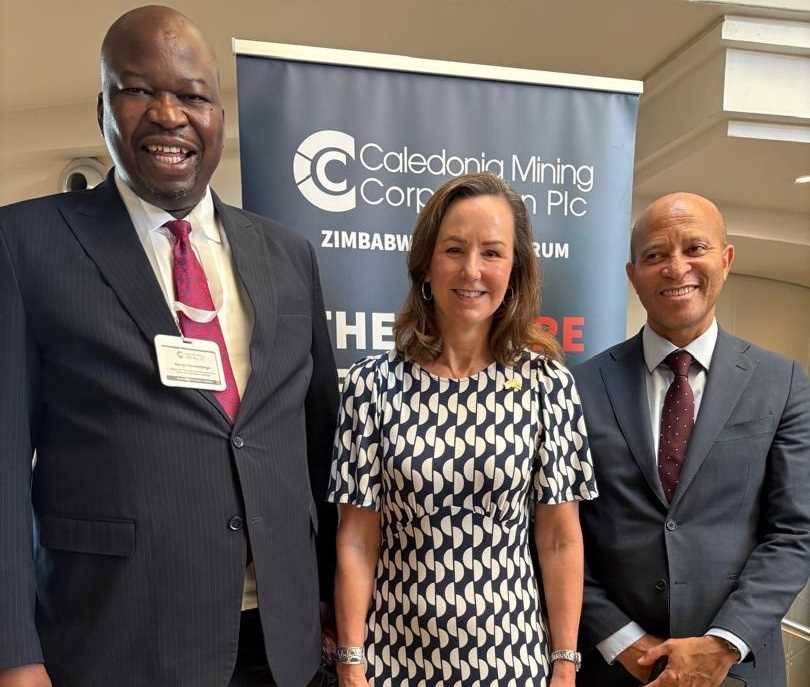
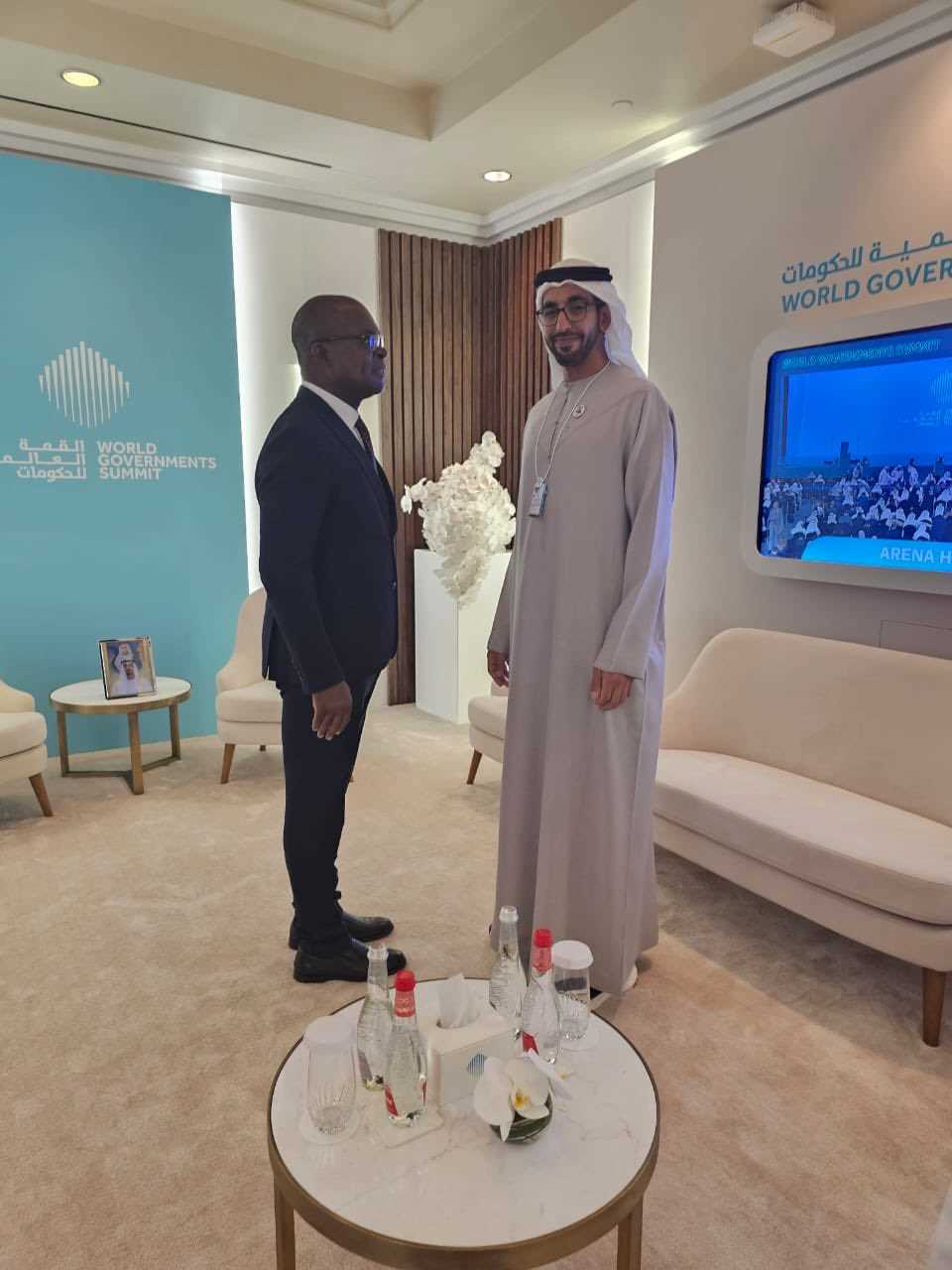
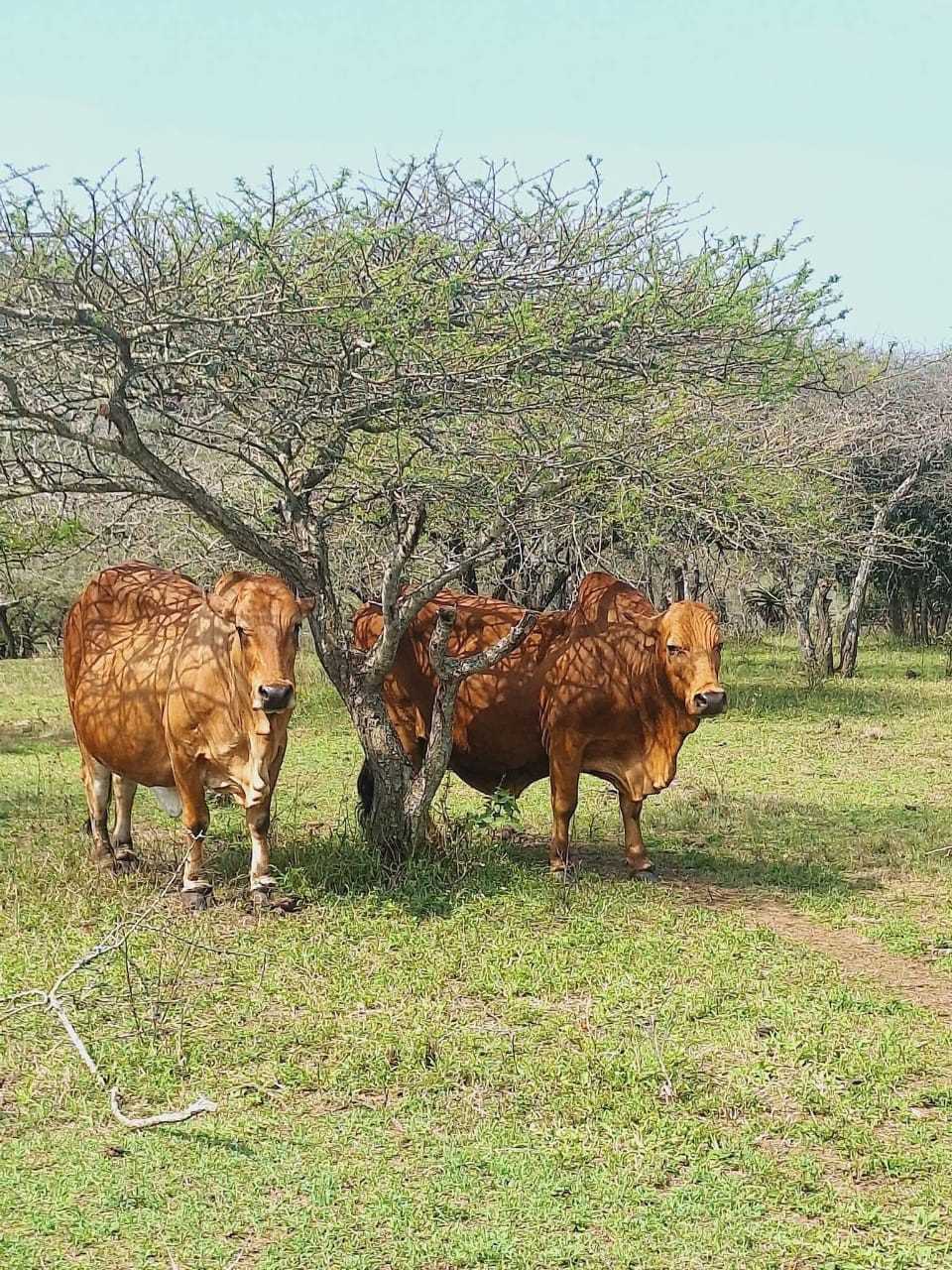


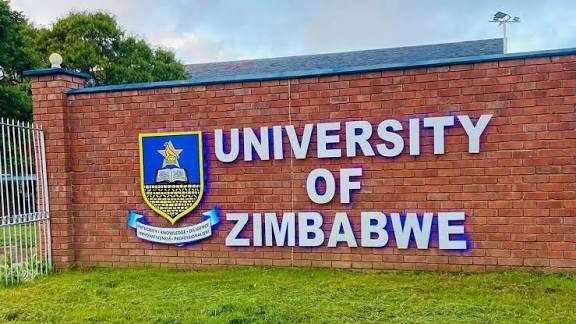




Leave Comments